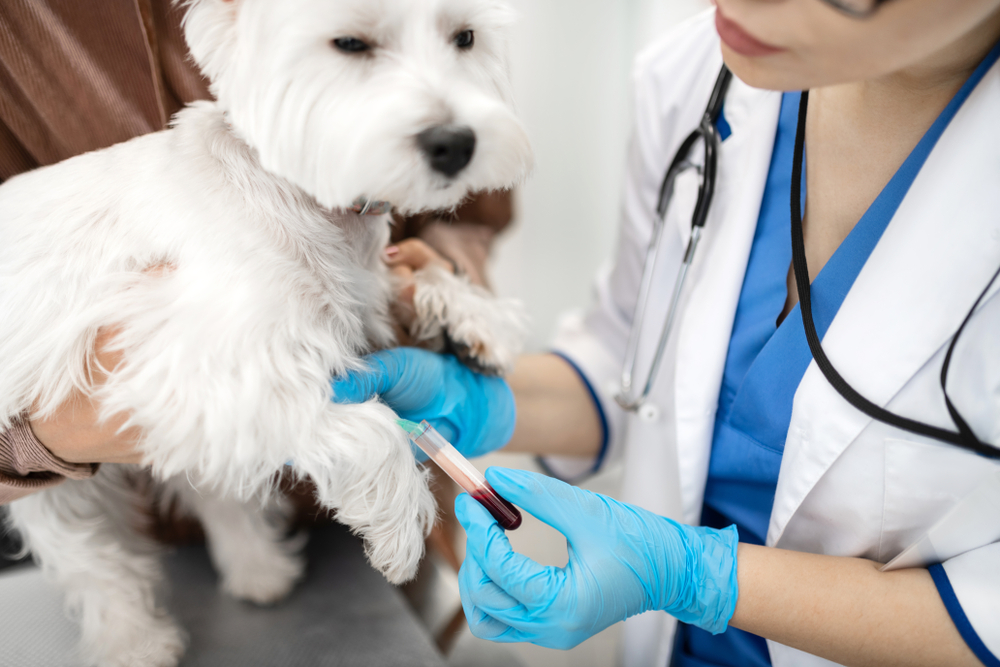Did you recently receive a reminder about your pet’s diagnostic wellness screenings? These tests may seem unnecessary if your pet is young and apparently healthy, but they are an important aspect of your four-legged friend’s health care. Our MountainView Veterinary Hospital team, which serves Denville, New Jersey, answers frequently asked questions about these critical tests.
Question: What diagnostic wellness screening tests do my pet need?
Answer: Our team determines the diagnostic wellness screening tests your pet needs based on their individual lifestyle and disease risk. We may potentially recommend the following tests:
- Complete blood count (CBC) — A CBC is the most common blood test, which looks at your pet’s red blood cells, white blood cells, and platelets, helping our team detect conditions such as anemia, inflammation, infection, blood clotting disorders, and certain cancers.
- Biochemistry profile — A biochemistry profile assesses multiple aspects of your pet’s health, and can detect issues such as diabetes, kidney dysfunction, liver disease, and electrolyte imbalances.
- Body condition score (BCS) — Our team assesses your pet’s weight status by performing a BCS. We evaluate certain body areas to determine whether your pet is at an ideal weight, and we track their score at every wellness visit.
- Urinalysis — A urinalysis detects blood, protein, glucose, bacteria, sediment, and other abnormalities in your pet’s urine, helping our team diagnose conditions such as kidney disease, urinary tract infections (UTIs), urinary calculi, and diabetes.
- Fecal check — We perform a fecal test to check for common intestinal parasites. Some of these parasites, including hookworms and roundworms, can also affect humans.
- Heartworm testing — The American Heartworm Society recommends that veterinarians test all dogs annually for heartworms to ensure these invasive parasites don’t damage your four-legged friend’s heart and lungs.
- Tick-borne disease testing — Tick-borne diseases, such as Lyme disease, anaplasmosis, and ehrlichiosis, can cause your pet debilitating illness, and screening provides valuable information about your pet’s exposure.
- Blood pressure check — Hypertensive pets often don’t exhibit signs until the condition causes serious health complications such as kidney disease or retinal detachment. We may recommend checking your furry pal’s blood pressure.
- Thyroid panel — Senior pets are at an increased risk for thyroid disease, and we may recommend a thyroid panel to check your pet’s hormone levels. Hypothyroidism is more common in dogs, whereas hyperthyroidism is more common in cats.
Q: Why are diagnostic wellness screening tests important for my pet?
A: Although your pet seems to be healthy, they still need to receive regular diagnostic wellness screening tests because they may have a condition brewing for which they have not yet exhibited illness signs. Diagnostic wellness screening tests are necessary for numerous reasons, including:
- Establishing a baseline — While laboratories provide a normal diagnostic test result range, every pet is different. Your pet’s normal value may fall on the higher or lower end of the lab’s normal range. Diagnostic wellness screening tests help our MountainView Veterinary Hospital team establish your pet’s baseline, so we can detect subtle changes that may indicate a need for treatment as soon as possible.
- Tracking diagnostic trends — Annual or biannual screening allows our team to track your pet’s diagnostic trends, which helps us detect potential problems.
- Detecting early disease — Pets often hide illness and pain, and diagnostic wellness screening tests help our team detect conditions in the early stages, before your pet exhibits signs. This allows us to initiate a treatment strategy to address the problem, providing the best prognosis for your four-legged friend.
- Protecting your pet from parasites — Pets affected by heartworms typically don’t exhibit signs until their condition is advanced, and many pets who have intestinal parasites never exhibit signs. Diagnostic wellness screening tests help our team detect these parasites before they can affect your furry pal’s health.
- Maintaining your pet at a healthy weight — Monitoring your pet’s BCS allows our team to track your pet’s weight status so we can make dietary recommendations to ensure they remain at a healthy weight. In addition, other wellness screening tests allow us to detect illnesses, such as diabetes, hyperthyroidism, and hypothyroidism, that may affect your pet’s weight.
- Saving you money — Detecting health conditions early, before they lead to an emergency veterinary visit, is a much more affordable option.
- Providing peace of mind — When your pet’s diagnostic wellness screening test results are normal, you can rest assured that your pet is happy and healthy.
Q: How often does my pet need diagnostic wellness screening tests?

A: All pets should receive regular veterinary examinations. If your pet is predisposed to certain health issues or has a known medical condition, our team may suggest frequent monitoring. However, if your pet’s testing results remain near their baseline, their diagnostic wellness screening test frequency should be performed based on the following:
- Adult pets — Adult pets should be evaluated by a veterinarian and have diagnostic wellness screening at least once per year.
- Senior pets — Senior pets are at a higher risk for health problems and they should be evaluated by a veterinarian and have diagnostic screening every six months.
Our MountainView Veterinary Hospital team is proud to serve Denville, New Jersey pets. Ensure your pet remains healthy by regularly scheduling their diagnostic wellness screening test with our team.









Leave A Comment